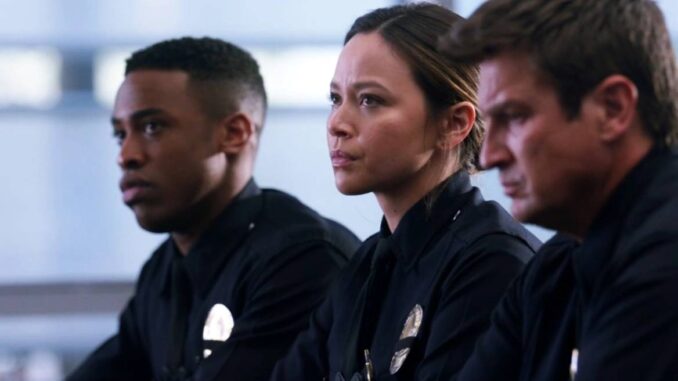
The Shifting Ensemble: A Historical Perspective on Casting Changes in The Rookie
Television, like life, is a dynamic entity, rarely remaining static over a prolonged period. For a long-running series, the ebb and flow of its ensemble cast is not merely a logistical necessity but often a powerful catalyst for narrative evolution. Few shows illustrate this principle as vividly as ABC’s The Rookie. Over its many seasons, The Rookie has navigated a series of significant casting changes, not as disruptions, but as integral chapters in its historical narrative, continually redefining its core premise while deepening the emotional and thematic complexity of its world. From the sudden, tragic departures to the strategic introduction of new faces, these shifts have been less about replacing parts and more about the ongoing, organic growth of a fictional police department and the human stories within it.
The earliest and perhaps most impactful casting change arrived with the shocking death of Jackson West (Titus Makin Jr.) at the outset of Season 4. West, one of the original rookies alongside Nolan and Chen, represented youthful idealism and a strong moral compass. His unceremonious and brutal murder, occurring off-screen in the line of duty, served as a stark, visceral reminder of the inherent dangers of police work. This departure, reportedly due to the actor's desire to leave the show, was not just a character loss but a narrative pivot. It injected a profound sense of vulnerability into the series, reinforcing that no character, regardless of their role or perceived safety, was truly immune. The grief experienced by Nolan and Chen, particularly Lucy, whose bond with Jackson was a cornerstone of their early struggles, resonated deeply. Historically, this event solidified The Rookie's commitment to high stakes and emotional realism, demonstrating a willingness to challenge its audience and its remaining characters by ripping away a beloved member of its founding trio. It marked a coming-of-age for the show itself, moving beyond the simple "rookie" premise to explore the enduring trauma and resilience required in law enforcement.
Beyond the stark reality of sudden loss, The Rookie has also leveraged casting changes to reflect organic career progression and the natural expansion of a precinct. The elevation of Angela Lopez (Alyssa Diaz) from Patrol Officer to Detective, while not a true "departure" from the cast, fundamentally altered the ensemble's dynamic. Her promotion opened up new narrative avenues, allowing the show to explore different facets of police work—investigations, court proceedings, and the unique challenges faced by detectives—while also showcasing her personal journey as a newlywed and mother. This historical shift illustrated the show's capacity for character growth beyond the initial "rookie" designation, demonstrating that the characters were not merely static archetypes but individuals evolving within their careers.
Concurrently, the introduction of Nyla Harper (Mekia Cox) in Season 2 was a masterclass in strategic casting. Harper arrived as a Training Officer (TO) for Nolan, stepping into a role that provided a much-needed dynamic counterpoint to his earnest, often naive approach. A detective with a complex past as an undercover operative, Harper brought a jaded wisdom and a street-smart cynicism that contrasted sharply with the other characters. Her addition was historically significant because it broadened the show’s demographic appeal and introduced a new form of mentorship. Her presence allowed for exploration of themes like post-traumatic stress, the sacrifices of undercover work, and the challenges of reintegrating into normal police life. Her casting wasn't just filling a void; it was about enriching the tapestry of the department with diverse experiences and perspectives, reflecting the multi-faceted nature of real-world policing.
As the original rookies ascended the ranks, the show faced the inherent challenge of its own title: how to maintain the "rookie" element when its central figures were no longer rookies? This was gracefully handled through the strategic introduction of new probationary officers. Following Jackson's death, Aaron Thorsen (Tru Valentino) was introduced, a character whose past involved a high-profile murder trial, bringing a different kind of public scrutiny and personal baggage to the force. Later, Celina Juarez (Lisseth Chavez) arrived, an intuitive and spiritually inclined rookie whose unconventional methods challenged the more rigid aspects of police procedure. Historically, these additions are crucial because they fulfill the show's original promise of following new recruits, but with a nuanced understanding that each rookie brings their own unique history, struggles, and perspectives. They allowed the veteran characters, particularly Nolan, Chen, and Bradford, to transition into more mentor-like roles, completing their own "evolution" from trainees to seasoned officers capable of guiding the next generation. This continuous cycle of new recruits ensures the show can perpetually explore the learning curve, the ethical dilemmas, and the personal sacrifices inherent in starting a career in law enforcement, keeping its core premise alive without stagnating.
In essence, The Rookie's historical journey through casting changes is a testament to its narrative resilience and adaptability. Each departure has forced the writers to explore deeper emotional veins, while every addition has provided fresh perspectives, new dynamics, and expanded thematic territory. These changes are not scars but rather growth rings, each one marking a period of evolution that has strengthened the show's ensemble, broadened its scope, and allowed its core characters to mature beyond their initial, namesake roles. In a television landscape where long-running shows can often feel repetitive, The Rookie demonstrates that by embracing the natural flux of its cast, it can continue to reinvent itself, staying vibrant and relevant, much like the ever-changing, challenging world of policing it portrays.
